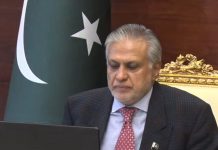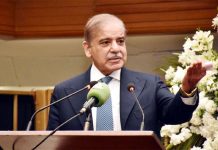UNITED NATIONS: The UN High Commissioner for Human Rights, Volker Turk, Tuesday asked all nations to work harder towards abolishing the death penalty, an ongoing practice in 79 countries.
He was speaking at the Geneva-based Human Rights Council which held its biennial high-level panel discussion on the question of the death penalty. The theme of this year’s panel was “Human rights violations relating to the use of the death penalty, in particular with respect to limiting the death penalty to the most serious crimes”.
Turk said this is ultimately about the United Nations Charter’s promise of the highest standards of protection of all human beings, in the spirit of the Universal Declaration of Human Rights, which marks its 75th anniversary this year.
“Opponents to a death penalty moratorium say that the rights of victims risk being overlooked; they assert that retribution is the best response,” he said, wondering aloud where humanity lays in revenge. “Are we not debasing our societies by depriving another human being of their lives?”
Experts in criminal justice, drawing on experience worldwide, advise that the proper response rests in controlling and preventing crimes, the high commissioner said. They recommend building functioning, human rights-based criminal justice systems that ensure accountability for perpetrators and afford victims and survivors access to justice, redress, and dignity.
Turk also urged governments to collect, analyze, and make available public data on its use and actual effectiveness.
Achievements towards the goal of abolishing capital punishment can be seen across different regions of the world, the UN rights chief said.
Sarah Belal, who heads the non-governmental organization Justice Project Pakistan, noted that nearly 4,000 people are on “death row” there, relating to 30 current capital offences, saying that every country’s journey towards abolition or compliance with international standards is tethered to their own sociocultural context.
When Pakistan lifted its seven-year death penalty moratorium in 2014 following a devastating terrorist attack, 325 people on death row were executed in 2015, she said. However, years of strategic advocacy and increased engagement with international human rights law “raised the political cost of executions”, she said, noting that no executions have been conducted since 2019.
Idrissa Sow, who chairs the African Commission on Human and Peoples’ Rights’ working group on the issue, said the African Union is considering a draft protocol to the Charter on the Abolition of the Death Penalty, 26 nations have totally abolished the practice and 14 others are applying moratoria. –Agencies




